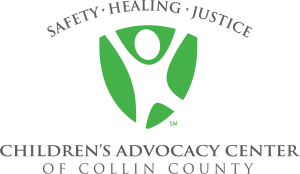Background
The Children’s Advocacy Center of Collin County (CACCC) provides safety, healing, and justice for children who have been victimized by abuse or neglect in Collin County, one of the most populous counties in Texas. CACCC serves as a central hub for children in need by housing and coordinating the efforts of professionals who care for child abuse victims in one location, making it easier for children to access all the services they need in one place.
Challenge
Collin County was experiencing exponential population growth, particularly in its Northern cities. Demand for CACCC services, located in the far Southeast corner of the county, rose along with the population, prompting the organization’s leadership to consider ways to expand its program space to meet the growing need in a more accessible location. The instinctive belief was to build a larger facility and relocate to the center of the county, estimated to cost $15 million.
Solution
Before embarking on a capital campaign, CACCC enlisted Mission Advancement to conduct a planning study to determine:
– Should CACCC move locations?
– Is building a bigger center the answer?
– Could CACCC raise the money from our donor base to do so?
– Is that a campaign we should launch?
Often a planning study is synonymous with a feasibility study.
A feasibility study simply determines if a goal can be achieved, and if the monetary value is the right goal to fill the organization’s need. A Mission Advancement planning study not only tests the number and the need, but also, and critically, the support for the plan.
Many organizations tend to have an inward focus when it comes to their processes, often thinking in terms of “raising money to achieve X.” However only a handful of individuals hold the influence and affluence to truly impact the outcome of a campaign.
Rather than simply conducting a survey of 200-300 people, Mission Advancement and CACCC pinpointed the 20-30 individuals whose opinions hold the most weight, connecting with them for thoughtful, in-person conversations.
After interviewing the key stakeholders, Mission Advancement returned to CACCC with their findings: while the donors loved the organization’s mission and CEO, and agreed there was a need to serve more children, they did not agree with the expansion plan.
Armed with this knowledge from Mission Advancement, the CACCC researched school district data. They created a heat map to determine where most of the population grew and visited other children’s advocacy centers.
CACCC’s research findings combined with the Mission Advancement planning study helped determine the appropriate course of action: build a satellite center that would be less costly but meet the need all the same.
Impact
Because Mission Advancement listened to the CACC donors and heard that they agreed with the number and the need, but not the plan, they felt invested in the process. CACCC fostered trust as it took sound advice from its supporters. The result: a widely successful capital campaign.
CACCC raised 60% of the funds for the campaign within 15 months and achieved its initial objective of $10 million within the original 24-month timeframe.
60%
15 months of starting campaign
$15M
build CACCC's new facility
Summary
Engaging donors through individual, personal conversations is a critical component of any non-profit organization’s fundraising efforts. By listening to core donor feedback, organizations can better understand how their strategic plan is perceived and address any concerns that donors may have. This feedback not only helps organizations refine their approach but also demonstrates to donors that their opinions are valued, and they play a significant role in the organization’s success. Donors who feel heard and valued are more likely to remain engaged and supportive of the organization’s mission, making them more likely to contribute to future fundraising campaigns. Engaging donors in individual, personal conversations is a vital step in laying the foundation for a successful capital campaign.




